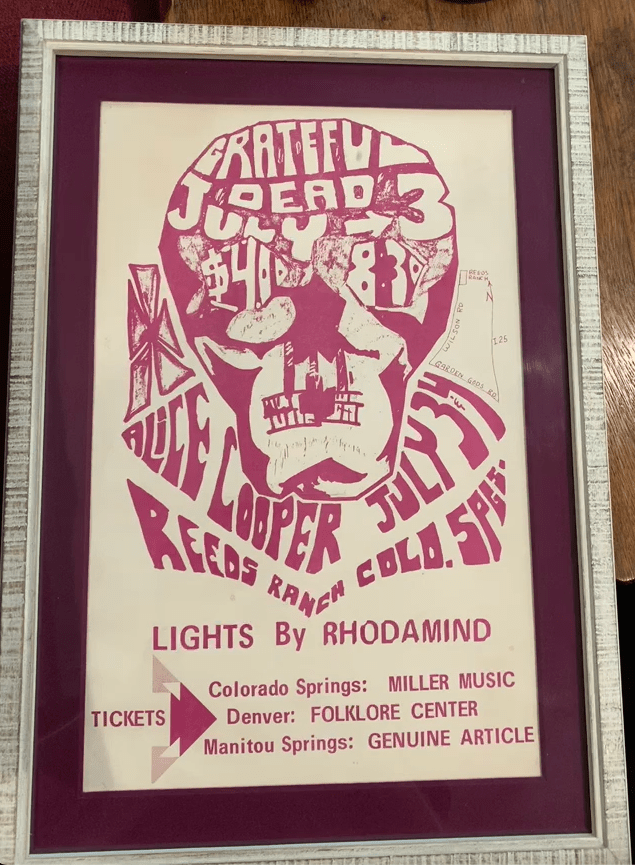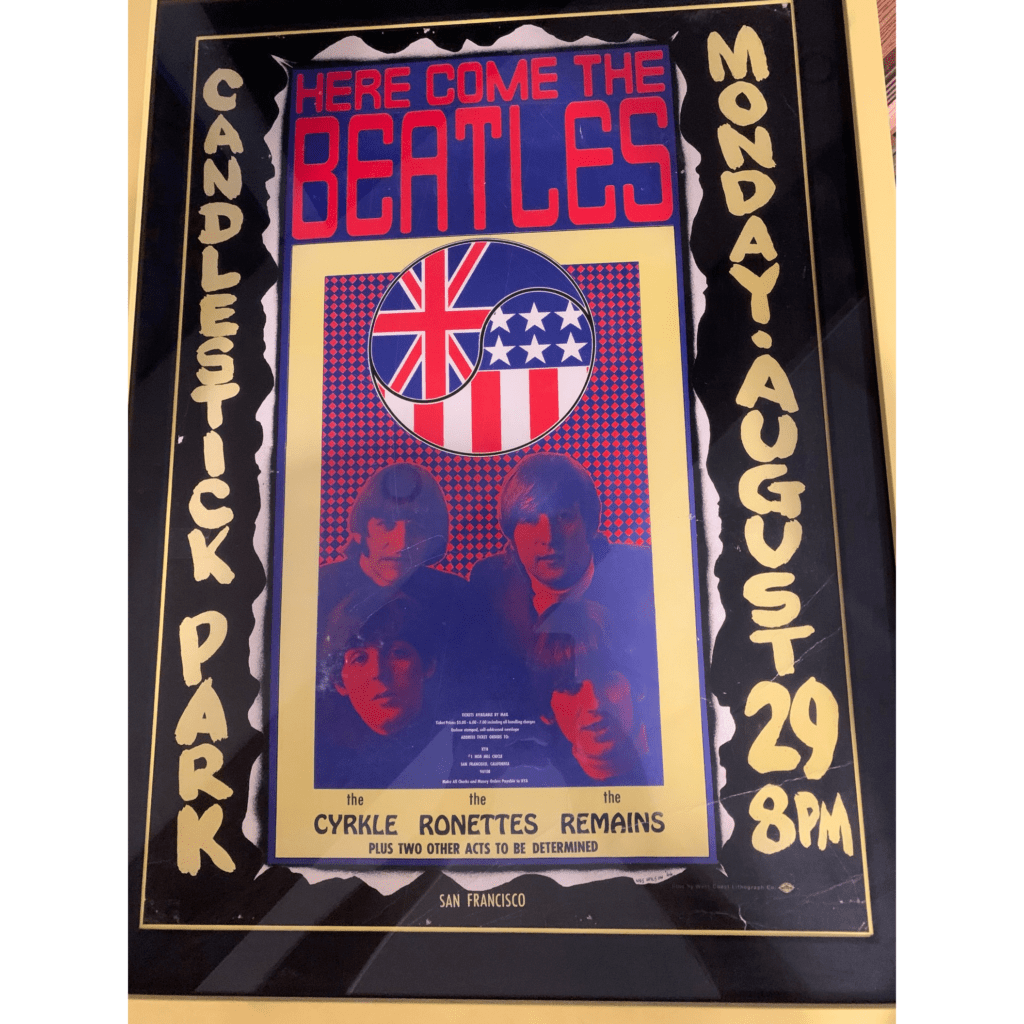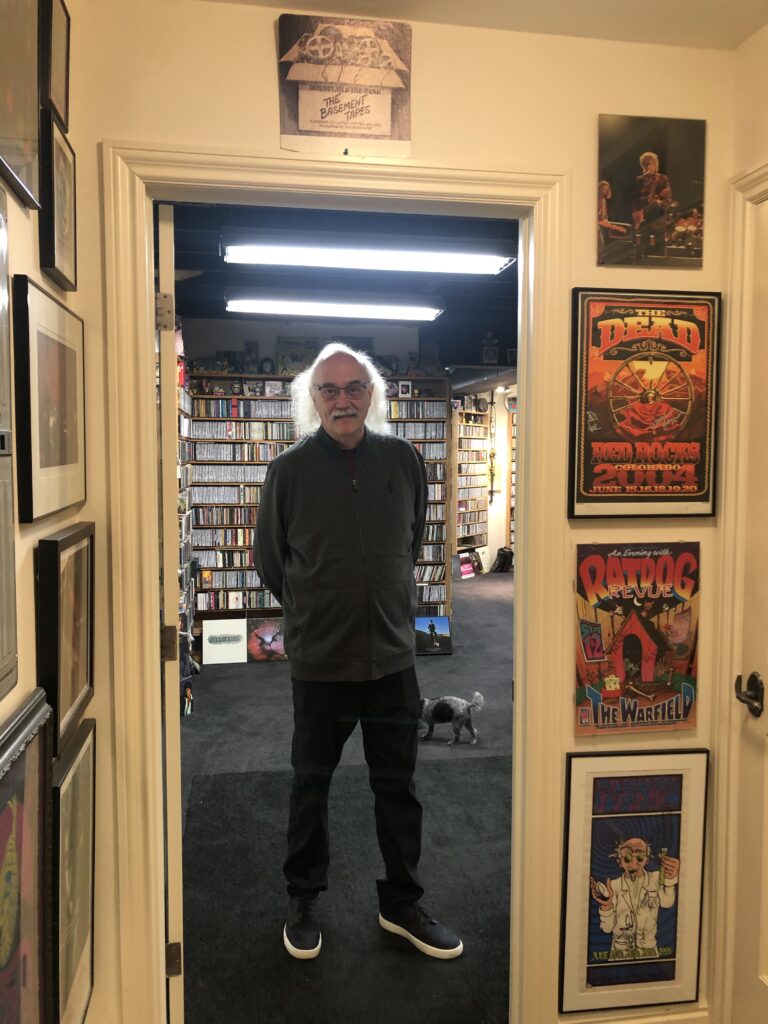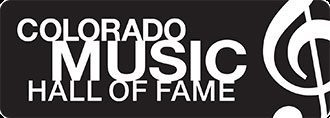Colorado Music Hall of Fame inductee Harry Tuft and his Denver Folklore Center are one of the most important stories to be told in the history of Colorado music. Harry (who grew up in Philadelphia) originally started the Denver Folklore Center in 1962 with a few acoustic instruments to sell and a desire to share his love of folk music and folk traditions with others. Originally located on 608 East 17th Avenue the Folklore Center nurtured multiple generations of local and national musicians with their instrumental, educational and social needs. The Center was a place to take lessons, get strings, share tales of the road, pick with friends or perform a paying gig. Over the years, the Folklore Center moved to different locations and eventually gave birth to Swallow Hill Music Association which has morphed into an internationally-recognized mecca for all facets of folk music.
The Folklore Center itself went through a number of changes –with Harry closing it in 1980 only to reopen it in 1993 at 1893 South Pearl Street where it remains (true to its mission) to this day but under new ownership. Harry is beyond legendary in the music history of our state. Few have accomplished more for their community, and done it with such understated dignity and kindness.
I have had a number of encounters with Harry throughout the years, but the most significant for me was when he decided to retire from the Folklore Center and asked me to help him go through the mountain of posters he had in the basement. Knowing me to be a big poster collector, he figured I might have some insight into what some of this stuff was worth and maybe help him figure out how to sell it. If I recall correctly, he collared me at a Colorado Music Hall of Fame event and showed me a photo on his phone. It was a poster of The Grateful Dead and Alice Cooper at Reeds Ranch in Colorado Springs. My heart almost stopped! This guy sure knew how to get my attention.
At that time in history, this show was long rumored but barely substantiated. It was truly one of the white whales of Colorado rock and roll history. Since then, a fine tape recording of the event has surfaced, though no photographic evidence exist–as of yet. It turns out the show also featured Colorado Music Hall of Fame inductee, Zephyr. Apparently, a few shows had been promoted at a barn on this property at Reeds Ranch outside of Colorado Springs. The production team was called MFP (Mother Fu@%&ng Punks) and had previously been working at the Colorado Springs club Kelker Junction. This was the last show at Reeds Ranch, because so much money was lost due to gatecrashing. Accounts put 400-500 people attending the show. Gotta wonder how many people were there to see The Dead, Alice Cooper, Zephyr or just to make the scene?
I told Harry I was at his service and scheduled a time later to meet. I was greeted by a disorganized mountain of paper ephemera. Flyers, posters, handbills, newspaper articles and some just plain junk. We spent the better part of an afternoon organizing it and, when we got to the end, I was filthy, exhausted and thrilled with what we had found. I told Harry that I thought he had some really important stuff and that it would be a real shame to break it up. I then made him a large offer, which he seemed quite happy with, for everything I had put in the “historically relevant” pile. I’ll show the two biggest finds this week, and in the next blog I will show more of this amazing trove of Colorado music history.

The Alice Cooper, Zephyr, Grateful Dead poster from Reeds Ranch in Colorado Springs. The show took place on July 3, 1969 and allegedly featured two additional bands; The Holden Caulfield Blues Band (a psychedelic band from Salt Lake City) and Devin Mikles (a Colorado Folk singer). The poster features not-so-memorable artwork, but does have a neat little map showing the location and some local “on sale” information at the bottom. $4.00 seems like a bargain for tickets. The Grateful Dead supposedly started their set at 3:00 am and finished just before sunrise.

This second poster, while not related to Colorado, is a very important piece of rock history and further illustrates Harry Tuft’s role at the center of the counterculture. It is the final concert performed by The Beatles. Performed on August 6, 1966 at San Francisco’s Candlestick Park (now torn down), this show marked the end of The Beatles as a performing group. A fantastic design, dripping with history, and in remarkably good condition (the colors almost glow), my knees buckled when I found this almost at the bottom of Harry’s pile of paper.
– Paul Epstein, Co-Chair, Colorado Music Hall of Fame; founder/former owner of Twist & Shout; music historian and archivist

“I moved to Colorado in 1968 and started going to concerts almost immediately. I eagerly grabbed posters, flyers, ticket stubs, advertisements, concert recordings, pretty much any proof I could find that the event happened. In 1988, I started a record store called Twist & Shout, and my collecting of memorabilia went into even higher gear. Over the next 34 years, I had rare access to memorabilia of all types and sizes. Now that I’ve retired, the time seems right to start sharing these things, and the stories that go with them. So, every other Tuesday, I will ask you to Let Me Take You Down (to the basement) to check out some of the good stuff!” – Paul Epstein
